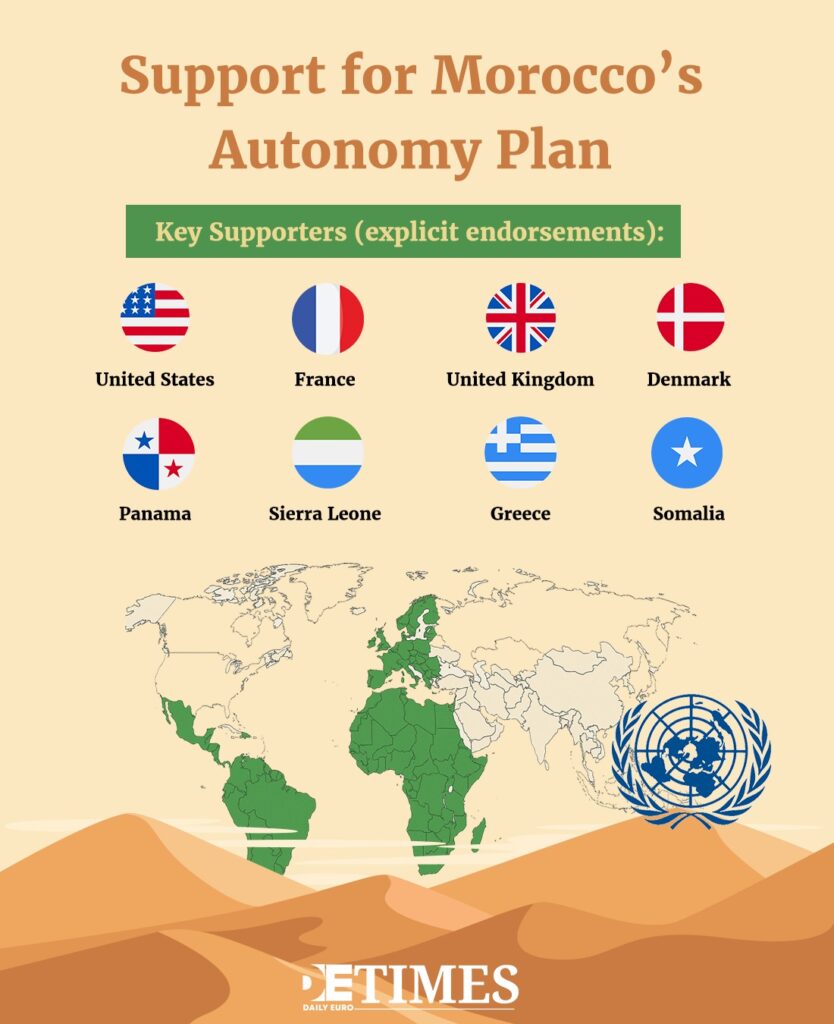The 31st of October, 2025, saw a United Nations vote that brought celebrations to the streets of Rabat.
Eleven members of the Security Council voted to endorse Morocco’s autonomy plan as the foundation for negotiations over Western Sahara, an event King Mohammed VI called “a before and after.”
Resolution 2797 became a turning point after decades of diplomatic stalemate. For Morocco, it was the culmination of 18 years of patient work since it first submitted its autonomy proposal back in 2007.
Morocco’s Winning Strategy: Building Global Partnerships
The diplomatic victory was the result of a focused, long-term strategy. Morocco’s Foreign Minister, Nasser Bourita, explained that the kingdom’s achievements were built on systematic political, economic, and social efforts.
A component of the strategy involved building connections across Africa with investment and infrastructure projects. In Western Sahara itself, Rabat invested heavily to legitimize its control, building a deepwater port and a massive highway while using state subsidies to keep prices low.
The groundwork led to a growing wave of international endorsements, with backing from the United States, major European powers, and numerous African countries.
Algeria Left on the Sidelines
As Morocco celebrated, Algeria found itself increasingly isolated. After the vote, UN envoy Staffan de Mistura stated that the parties to the dispute are “clearly identified as Morocco, the Polisario, Algeria, and Mauritania.” This explicit naming formalized Algeria’s role as a direct participant in the dispute.
Algeria’s ambassador told the council the resolution fell short of Sahrawi aspirations, and it chose to abstain from the vote. The resolution’s language set a new course by stating for the first time that “genuine autonomy under Moroccan sovereignty could constitute a most feasible solution.” Moroccans see the outcome as a huge setback for the Polisario Front and its main backer, Algeria.

An Uncertain Future for a Fractured Connection
With the new reality, the focus is on the tense standing between the two North African neighbors. The 1,400-kilometer land border between them has been closed since 1994, dividing families and stifling trade. Both governments have also increased their defense spending.
However, there are signs of a potential thaw. King Mohammed VI extended a diplomatic hand, inviting Algerian President Abdelmajid Tebboune to a “sincere and brotherly dialogue” to rebuild their connection.
The United States is also pushing for a resolution. US Special Envoy Steve Witkoff revealed that Washington is pursuing a reconciliation deal, reportedly a priority for President Trump.
For now, Algeria’s foreign policy is increasingly defined by its response to Morocco’s diplomatic advances. Morocco maintains a technological and diplomatic advantage through its accords with Israel and strong standing in Washington and European capitals.
The View from Europe: A Welcome to Stability
European powers have their own reasons for supporting Morocco’s plan. As they grapple with energy needs and migration management, Morocco serves as a stable partner for both trade and security.
The UN resolution offers Europe an opportunity to engage more deeply with a predictable North African ally, a development that supports European interests in migration management, security cooperation, and economic development.
Keep up with Daily Euro Times for more updates!
Read also:
Algeria vs. Morocco: Diplomatic Isolation and New Alliances
Morocco Edges in on Spanish-Controlled Sahara Airspace
Visa Denial: When Borders Become Weapons






